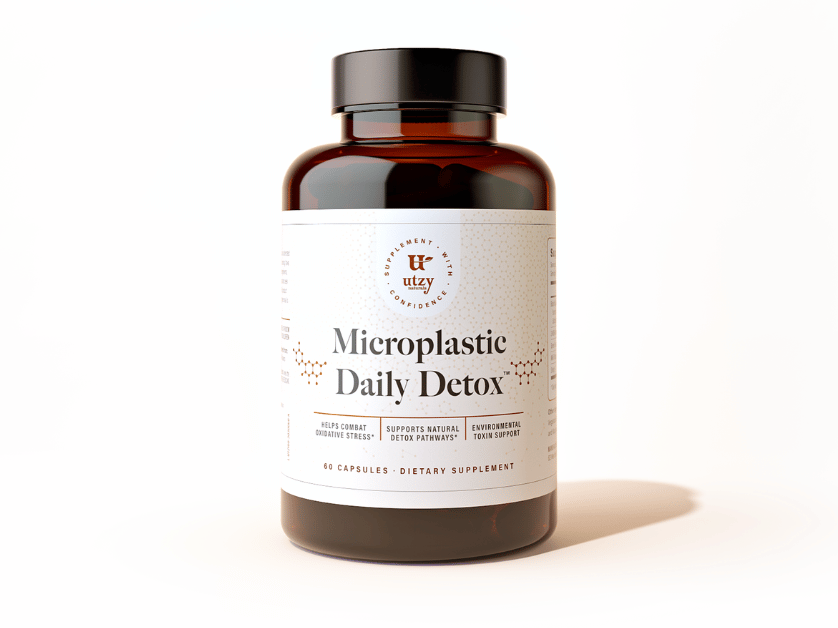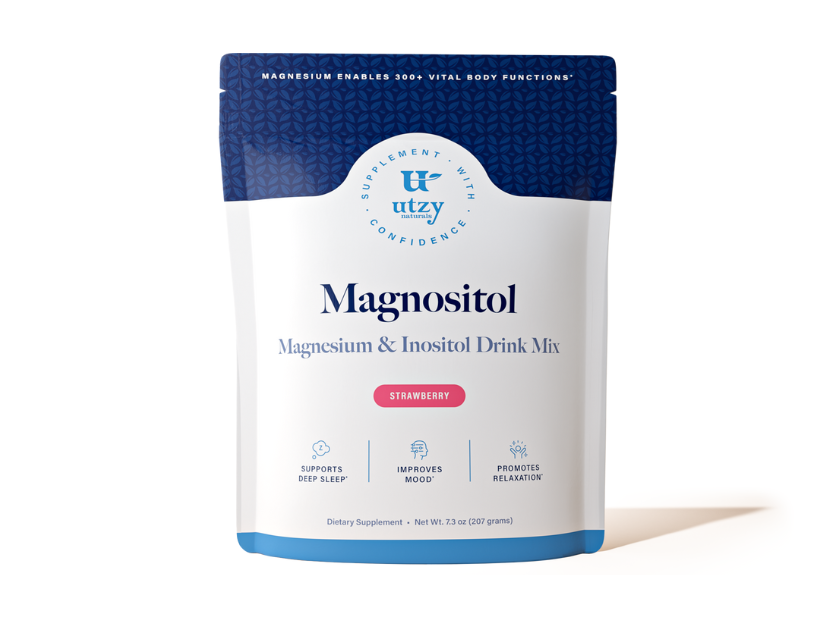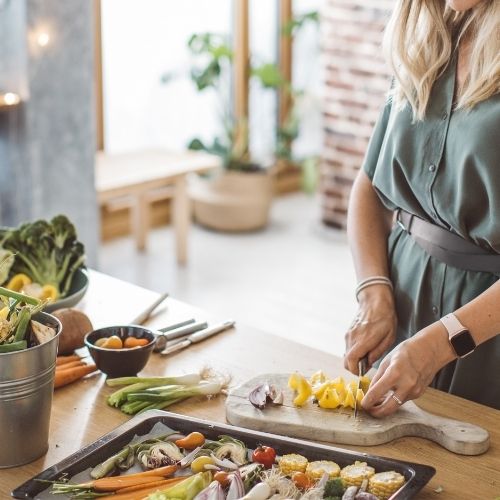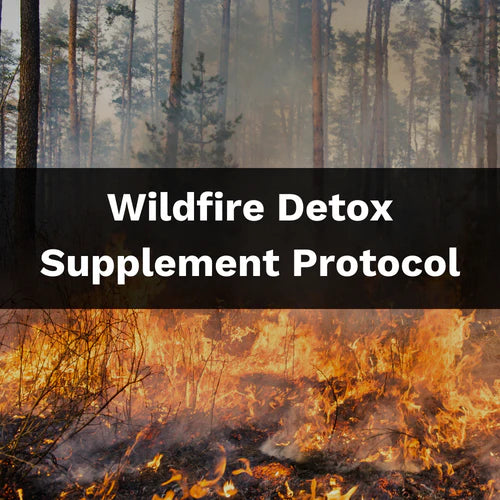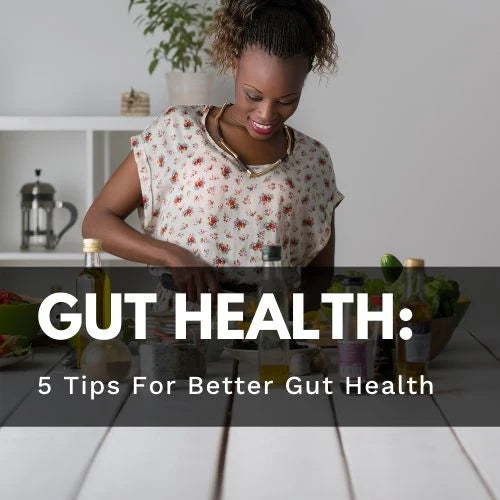shop
learn
The 12 Worst Microplastic Foods To Avoid
August 14, 2025 4 min read
Microplastics, tiny particles of plastic less than 5 millimeters in size, have made their way into the global food supply.
They are in the oceans, rivers, soil, and even the air we breathe. Because these particles are so small, they can pass through food chains and end up on our plates.
While avoiding microplastics completely is not possible, knowing which foods are most likely to contain them can help you make smarter choices and reduce your exposure.
Here are 12 common foods that research shows can contain higher amounts of microplastics.

1. Bottled Water
One of the most surprising and concentrated sources of microplastics. Studies have found that bottled water can contain hundreds of thousands of microplastic particles per liter, often originating from the bottle itself and the cap.
Tip: Use a reusable glass or stainless steel bottle and refill it with filtered water.
2. Tea Bags (Plastic Mesh or Nylon)
Certain tea bags are made from nylon or contain plastic-based sealing materials. When steeped in hot water, they can release billions of microplastic particles into your cup.
Tip: Opt for loose-leaf tea or paper tea bags without plastic mesh.
3. Table Salt (Including Sea Salt)
Salt, especially sea salt, often contains microplastics from polluted ocean waters. Even Himalayan pink salt and black salt have been found to contain microplastics from terrestrial sources.
Tip: Rotate between salt sources and choose brands that test for contaminants when possible.
4. Rice
Research shows that rice can contain microplastics, especially instant rice, which may have higher levels due to processing and packaging.
Tip: Rinse rice thoroughly before cooking to reduce microplastic content by up to 40 percent.
5. Breaded Seafood (Shrimp, Fish Sticks)
Breaded and processed seafood can be a significant source, especially bottom-feeders like shrimp. The breading and processing can also introduce plastics from manufacturing.
Tip: Choose fresh, unprocessed seafood and cook it yourself.
6. Fresh Fish
Wild and farmed fish alike can contain microplastics due to contaminated waters. Species like anchovies, sardines, and mackerel, which consume plankton at the surface, may have higher levels.
Tip: Diversify your protein sources and choose fish from cleaner, regulated waters when possible.
7. Shellfish (Mussels, Clams, Oysters)
Because shellfish filter large volumes of water to feed, they can accumulate microplastics directly from their environment.
Tip: Limit intake or choose sources from cleaner waters with sustainable harvesting practices.
8. Apples
Studies have found that fruits like apples can absorb microplastics through their roots and transfer them to the fruit itself. Apples have been measured as one of the most contaminated fruits studied.
Tip: Wash produce thoroughly, but note that microplastics inside the flesh cannot be rinsed away.
9. Carrots
Root vegetables like carrots can absorb microplastics directly from soil. In some studies, carrots contained the highest concentration of microplastics among vegetables tested.
Tip: Buy from farms with regenerative or organic soil practices when possible.
10. Sugar
Processed sugar from both cane and beet sources has tested positive for microplastic contamination, likely from both agricultural and processing stages.
Tip: Reduce overall added sugar intake and choose minimally processed sweeteners when possible.
11. Honey
Bees can collect microplastics from plants, air, and water sources, which then end up in honey.
Tip: Purchase local, raw honey to support small-scale producers and reduce processing exposure.
12. Beer
Microplastics can enter beer through water sources and processing equipment. Several studies have found measurable amounts in commercial beers across different countries.
Tip: Choose local craft beers that use filtered water, or limit overall intake.
Key Takeaways
Microplastics are now part of our global food system, and while avoiding them entirely is not possible, small changes can reduce your daily exposure:
-
Filter your drinking water
-
Avoid plastic packaging when possible
-
Choose fresh, unprocessed foods
-
Rinse produce and grains before eating or cooking
Supporting your body’s natural detox systems with a nutrient-rich diet and targeted supplementation can also help you stay resilient in today’s environment.
Supporting the Body’s Natural Defenses
Even with careful habits, some particles will still make their way into your body. This is why it is important to maintain healthy detox pathways.
After more than a year of development, we created Microplastic Daily Detox, a daily supplement that contains:
- Black Kale – Activates your body’s Nrf2 detox pathway*
- Hobamine™ – Helps neutralize oxidative byproducts*
- Green Tea Extract – Supports healthy inflammation markers*
- Purified Shilajit – A mineral-rich adaptogen for cellular resilience*
- Milk Thistle – A traditional herb for liver support*
It is designed to help your body process and eliminate circulating microplastics so you can fight back against what you can’t see.
Learn more about Microplastic Daily Detox →

Dan Powers is the founder of Utzy Naturals, where he creates supplements to help people feel their best in today’s toxic, modern world. He’s passionate about simple, practical ways to live healthier and loves spending time with his family, gardening, and cooking.
Leave a comment
Comments will be approved before showing up.
Also in Health
Subscribe
Sign up to get the latest on sales, new releases and more …
Join the Utzy Naturals Club!
Sign up and get the latest on sales, new releases, and more...

